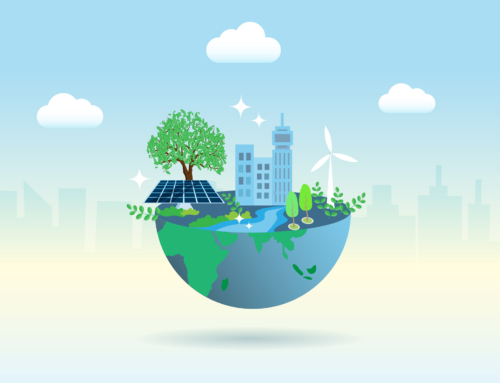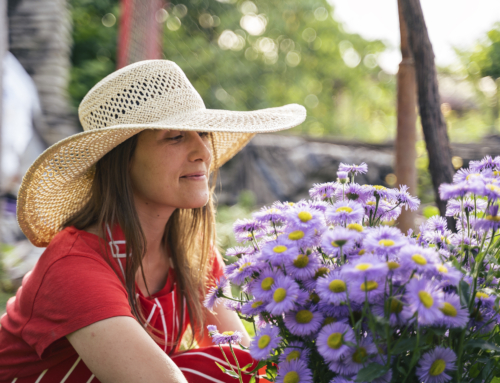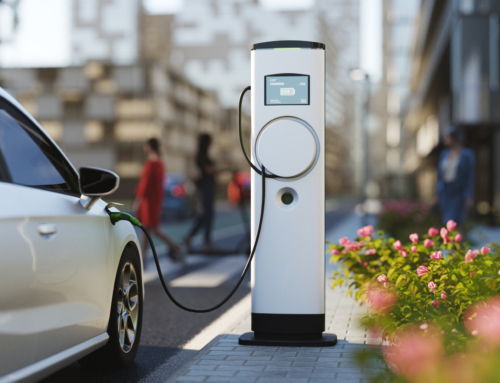Remember how your grandma was an expert at turning something old into something new and useful? Well, she was what we’d call a master at upcycling! Upcycling is essentially turning something old or used into something new, useful, or even pretty. Just to give you an idea, upcycling clothes is like what people did during the Great Depression when they turned old grain sacks into pretty dresses. While they probably didn’t think of it as upcycling at the time, the practice became so popular that companies even started to print their grain sacks with fun, floral patterns.
While you might not be making your next dress from a sack of grain, you probably have some old clothes lying around that you wish were a bit more interesting to look at. If you’ve ever wanted to learn how to upcycle clothes, you’re in the right place. We’ve compiled our favorite upcycling clothes ideas to get your creativity flowing. Check them out:
1. Resize Your Tops
Maybe you’ve put on a little weight, or perhaps you found the perfect layering tank at the thrift store but it’s just a tad too tight. Never fear, upcycling is here to save the day! This simple tutorial shows you how easy it can be to stretch out your tank top (or t-shirt) so it fits you a little better. All you’ll need is your too-tight tank and an old t-shirt you don’t care about to upcycle clothes for this project.
2. Add Some Color
That plain, white skirt you have is nice, but what if you could add a pop of color, or transform the color completely? Once you take a look at the I Love to Create page, you’ll be ready to transform all your clothes with some amazing fabric paints. Upcycle clothes by painting some red hearts? Yes, please! Add a city skyline to a grey t-shirt? No problem. The options for upcycling clothes with a little fabric paint really are endless.
3. Transform Old Shirts
Does your husband have an old button-up shirt he doesn’t wear anymore? Turn that old shirt into an adorable dress for a little girl. You can even add tulle to the inside or bottom to make it fluffy or add some bows to dress it up. Get creative, your little girl will love it.
4. Lengthen with Lace
This upcycling clothing idea is great for adjusting the fit of your tops. There’s an optimal length for shirts and sweaters, and then there are ones that are too cute to pass up but fall a tad short on the hip. One super cute way to extend their length and increase their appeal is to add a lace hem to the bottom. You can opt for any kind of lace you like, and could even use this technique to add some extra length to the bottom of a skirt as well.
5. Onesie Transformation
When your baby outgrows their old onesie you may decide to donate it to someone in need or save it for a future baby. However, there is another option—upcycle the clothing by turning it into a fantastic t-shirt for your growing baby. It’s a simple fix that involves cutting the bottom off the onesie and hemming it back up. Get creative and add some appliques or ruffles for an extra cute touch.
6. Patch it Up
Take your long-sleeve shirts or sweaters up a notch by adding your own elbow patches with this upcycling clothing idea. Keep in mind, these aren’t just any elbow patches—they’re heart-shaped ones! Not only are they super cute, but these patches also allow you to express yourself by adding more color to your outfit. You can use a patterned fabric, or some of the sequin skills you learned from our first point to add sequined hearts. There are tutorials for no-sew patches, or you can take the traditional route and sew them on.
7. Upcycled T-Shirt Dress for Girls
Another great way to upcycle clothes is by taking some old t-shirts and turning them into a cute, fun, durable dress for your little girl. This momma even used some fun stamps and added patterns to some plain t-shirts she used to make her daughter’s dress. Get creative and give your tattered shirts a new lease on life.
8. Lace Shirt to Cute Skirt
Although lace shirts aren’t in style anymore, lace skirts certainly are. Thankfully, you can take the former and turn it into the latter with a few simple snips and stitches. Trash to Couture has an awesome blog post on how she turned her outdated lace shirt into a beautiful chic skirt that pairs incredibly with a leather jacket.
9. Re-Do Your Shoes
Upcycling your clothes (and shoes) can be as simple as the Mod Podge you played with in grade school. Plus, it’s a super fun way to spend a girl’s night if you’re on a budget and want to make something new and fun. The ladies over at Catching Fireflies have a great tutorial and some super cute examples of their night of repurposing shoes and creating something new.

Learning how to upcycle your clothes doesn’t have to be difficult. Upcycling clothing can be a great way to save money and help the environment by reusing old materials. At Spring Power & Gas we believe we can all do our part to help the planet and reuse the materials we have. Learn more about our service and sign up with Spring Power & Gas today. Don’t forget to give these tips a try and upcycle your clothes with these upcycling clothing ideas to create something that feels fresh and new.




![Top 11 Sustainable Building Practices for Eco-Homes [Plus 5 Sustainable Materials]](https://springpowerandgas.us/wp-content/uploads/2023/02/iStock-181062267-500x383.jpg)

